-
About
- About Listly
- Community & Support
- Howto
- Chrome Extension
- Bookmarklet
- WordPress Plugin
- Listly Premium
- Privacy
- Terms
- DMCA Copyright
- © 2010-2024 Boomy Labs

 Michael Boll
Michael Boll
Listly by Michael Boll
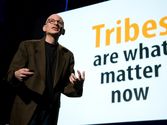
Seth Godin argues the Internet has ended mass marketing and revived a human social unit from the distant past: tribes. Founded on shared ideas and values, tribes give ordinary people the power to lead and make big change. He urges us to do so.
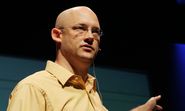
In this prescient 2005 talk, Clay Shirky shows how closed groups and companies will give way to looser networks where small contributors have big roles and fluid cooperation replaces rigid planning.
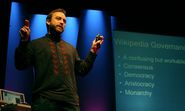
Jimmy Wales recalls how he assembled 'a ragtag band of volunteers,' gave them tools for collaborating and created Wikipedia, the self-organizing, self-correcting, never-finished online encyclopedia.
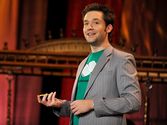
In a funny, rapid-fire 4 minutes, Alexis Ohanian of Reddit tells the real-life fable of one humpback whale's rise to Web stardom. The lesson of Mister Splashy Pants is a shoo-in classic for meme-makers and marketers in the Facebook age.
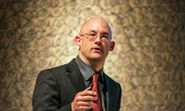
While news from Iran streams to the world, Clay Shirky shows how Facebook, Twitter and TXTs help citizens in repressive regimes to report on real news, bypassing censors (however briefly). The end of top-down control of news is changing the nature of politics.
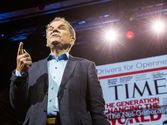
The recent generations have been bathed in connecting technology from birth, says futurist Don Tapscott, and as a result the world is transforming into one that is far more open and transparent. In this inspiring talk, he lists the four core principles that show how this open world can be a far better place.
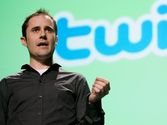
In the year leading up to this talk, the web tool Twitter exploded in size (up 10x during 2008 alone). Co-founder Evan Williams reveals that many of the ideas driving that growth came from unexpected uses invented by the users themselves.
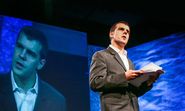
James Surowiecki pinpoints the moment when social media became an equal player in the world of news-gathering: the 2005 tsunami, when YouTube video, blogs, IMs and txts carried the news -- and preserved moving personal stories from the tragedy.
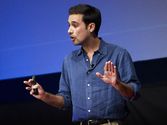
When every cellphone can record video and take pictures, everyone is a potential news source. Reporter Paul Lewis tells two stories that show us the future of investigative journalism.
(Filmed at TEDxThessaloniki.)
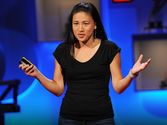
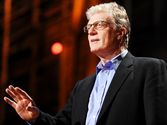
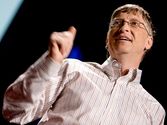
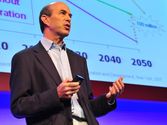

What is new about how teenagers communicate through services such as Facebook, Twitter, and Instagram? Do social media affect the quality of teens’ lives? Youth culture and technology expert Danah Boy
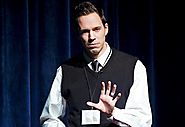
Today's math curriculum is teaching students to expect -- and excel at -- paint-by-numbers classwork, robbing kids of a skill more important than solving problems: formulating them. Dan Meyer shows classroom-tested math exercises that prompt students to stop and think.
Career analyst Dan Pink examines the puzzle of motivation, starting with a fact that social scientists know but most managers don't: Traditional rewards aren't always as effective as we think. Listen for illuminating stories -- and maybe, a way forward.

Sir Ken Robinson outlines 3 principles crucial for the human mind to flourish -- and how current education culture works against them. In a funny, stirring talk he tells us how to get out of the educational 'death valley' we now face, and how to nurture our youngest generations with a climate of possibility.

Monica Lewinsky advocates for a safer and more compassionate social media environment, drawing from her unique experiences at the epicenter of a media maelstrom in 1998.
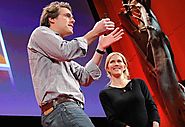
Babble.com publishers Rufus Griscom and Alisa Volkman, in a lively tag-team, expose 4 facts that parents never, ever admit -- and why they should. Funny and honest, for parents and nonparents alike.
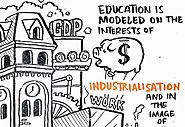
In this talk from RSA Animate, Sir Ken Robinson lays out the link between 3 troubling trends: rising drop-out rates, schools' dwindling stake in the arts, and ADHD. An important, timely talk for parents and teachers.

Education scientist Sugata Mitra tackles one of the greatest problems of education -- the best teachers and schools don't exist where they're needed most. In a series of real-life experiments from New Delhi to South Africa to Italy, he gave kids self-supervised access to the web and saw results that could revolutionize how we think about teaching.

Designer and architect Neri Oxman is leading the search for ways in which digital fabrication technologies can interact with the biological world. Working at the intersection of computational design, additive manufacturing, materials engineering and synthetic biology, her lab is pioneering a new age of symbiosis between microorganisms, our bodies, our products and even our buildings.
